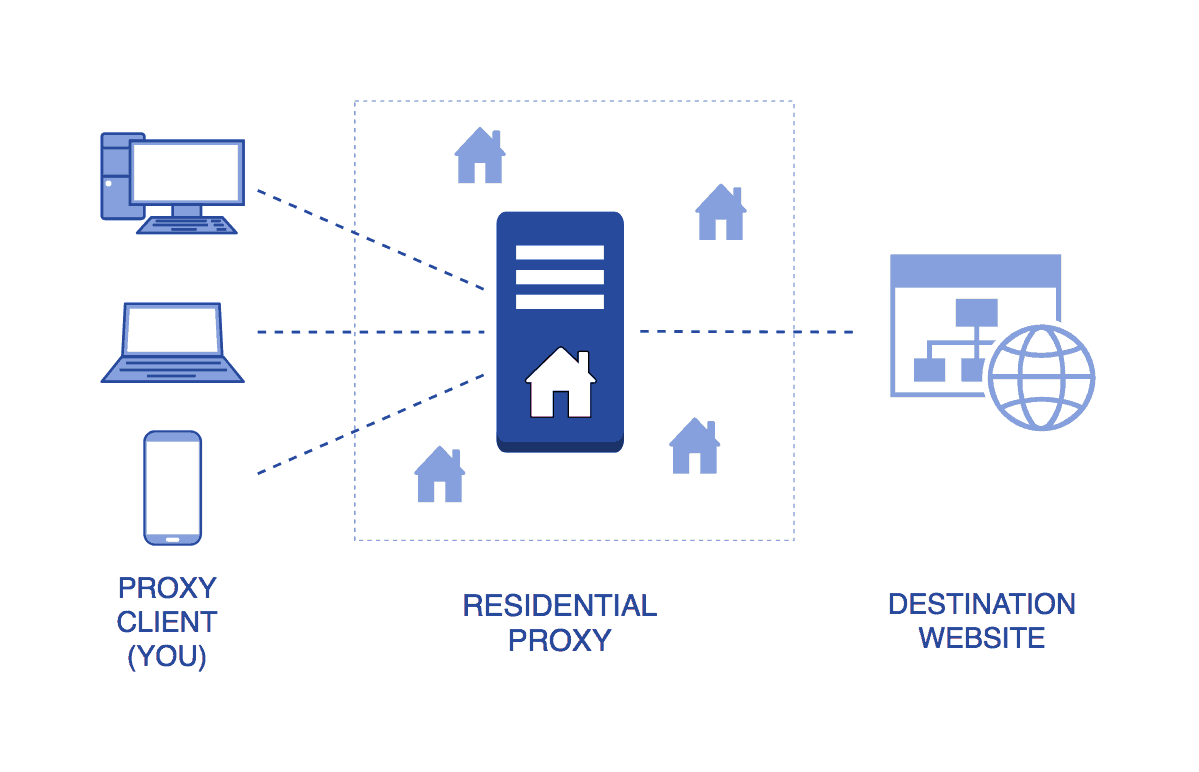In an increasingly digital world where consumer decisions are significantly influenced by online reviews, the authenticity of these reviews holds paramount importance. However, the proliferation of fake reviews has become a pervasive issue, distorting the trustworthiness of feedback and undermining consumer confidence. To manipulate opinions or artificially inflate ratings, individuals and businesses resort to unethical tactics, among which the use of rotating residential proxies stands out as a concerning method.
Understanding Fake Reviews and Rotating Residential Proxies
Fake reviews are fictitious evaluations created to falsely enhance or disparage a product, service, or entity. These can be generated by competitors seeking to damage a rival's reputation, businesses aiming to artificially boost their ratings, or individuals incentivized to write biased reviews.
Rotating residential proxies add a layer of complexity to this issue. Proxies serve as intermediaries between a user's device and the internet. Residential proxies, in particular, appear more legitimate as they route connections through residential IP addresses associated with real homes, making it harder to identify their true origin.

Unveiling the Dangers
Erosion of Trust: Fake reviews distort the reliability of review platforms, eroding the trust consumers have in them. If these fraudulent practices persist, genuine reviews lose their value, making it challenging for consumers to make informed decisions.
Unfair Competition: Legitimate businesses suffer when competitors resort to fake reviews. Companies investing in quality products or services might lose out to those artificially boosting their reputation through deceitful means.
Legal Implications: Many jurisdictions consider fake reviews as deceptive advertising, constituting legal violations. Businesses engaging in such practices risk legal actions and substantial penalties.
Fake Reviews Using Rotating Residential Proxies
- Enhanced Review Validation Mechanisms
Platforms hosting reviews must implement robust verification systems. Incorporating technologies like machine learning algorithms to detect suspicious patterns, identifying anomalies in review behavior, and validating the authenticity of users can help mitigate the influence of fake reviews.
- Transparency Policies
Review platforms should enforce transparent policies, disclosing their mechanisms for verifying reviews. Transparency fosters trust among consumers, enabling them to make informed decisions while discouraging fraudulent practices.
- Rigorous Penalties
Platforms need to impose strict penalties for individuals or entities caught engaging in fake review activities. These penalties should serve as deterrents, discouraging unethical behavior.
- Collaborative Efforts
Collaboration between review platforms, regulatory bodies, and law enforcement agencies is crucial. Joint efforts can establish guidelines, share best practices, and create legal frameworks to combat fake reviews effectively.
- Educating Consumers
Empowering consumers with knowledge about the prevalence of fake reviews and how to identify potential red flags can reduce their susceptibility. Educated consumers are more likely to scrutinize reviews and make informed decisions. For best services click Resiprox.com.

Conclusion
Combatting fake reviews facilitated by rotating residential proxies demands a multifaceted approach. Stricter validation measures, transparency, penalties, collaborative efforts, and consumer education can collectively mitigate the adverse effects of fraudulent reviews. Upholding the integrity of online reviews is crucial for fostering trust and ensuring a fair marketplace for both businesses and consumers. Ultimately, collective action is pivotal in preserving the authenticity and credibility of online reviews.


No comments yet